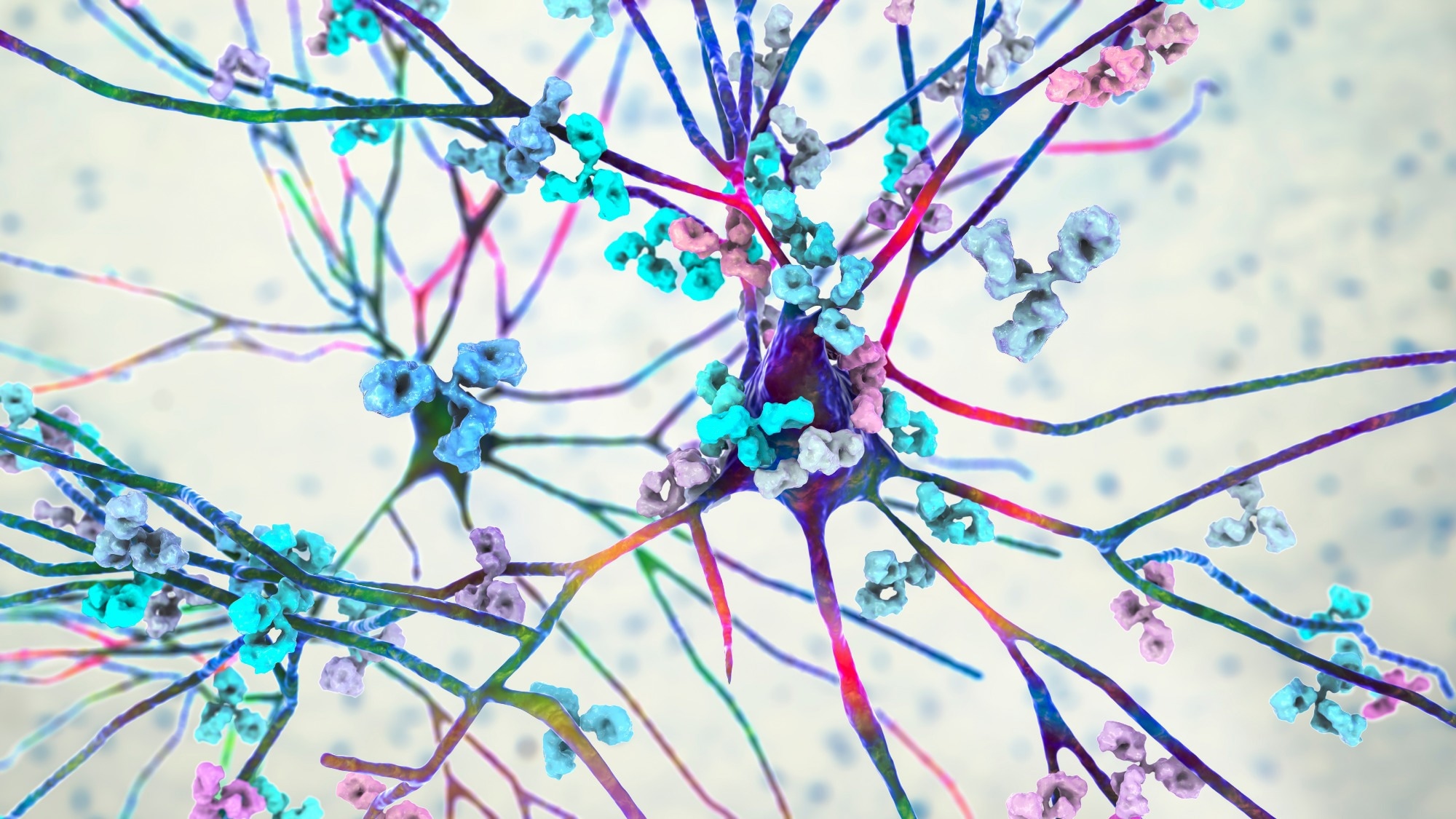The review comprehensively covered the principles, procedures, and sequencing platforms used in scRNA-seq, and explored its use in understanding the mechanisms of nine systemic and 32 organ-specific autoimmune and autoinflammatory diseases.
 Study: Research progress of single-cell transcriptome sequencing in autoimmune diseases and autoinflammatory disease: A review. Image Credit: Kateryna Kon/Shutterstock
Study: Research progress of single-cell transcriptome sequencing in autoimmune diseases and autoinflammatory disease: A review. Image Credit: Kateryna Kon/Shutterstock
Background
Autoimmune diseases (AID) are a complex phenomenon involving various types of cells. The diseases occur when the body’s immune system fails to recognize its cells and components and launches an immune response against them. Autoimmune diseases are broadly divided into organ-specific and non-organ-specific AID.
Research indicates that AID is associated with lowered or absent tolerance of B and T cells, and human leukocyte antigen sites are generally connected with increased susceptibility to AID. While studies have deciphered the genetic and immunological mechanisms of some AID, the pathogenesis and molecular or environmental drivers of most AID are still unclear.
Furthermore, many immunomodulatory drugs result in adverse reactions such as malignancy and infections, and the cell and tissue heterogeneity in patients sometimes results in no health improvements. Tailored and more effective treatment options can be developed by better understanding the pathogenic molecular mechanisms of AID using scRNA-seq.
Objectives of the review
The present review aimed to describe the basic principles of scRNA-seq and discuss the procedures and sequencing platforms used in the process. The authors also discussed the applications of scRNA-seq in understanding nine non-organ-specific and 32 organ-specific diseases.
The review also explored a combination of single-cell sequencing technologies and multi-dimensional and multi-molecular analysis approaches in targeting the molecular mechanisms of AID, which would provide a basis for examining the pathogenesis and molecular markers of autoinflammatory and autoimmune disorders in the future.
The scRNA-seq pipeline
The review described the various steps of the scRNA-seq process. The process begins with methods of viable single-cell capture, such as serial dilution and fluorescence-activated cell sorting. The tissues used in scRNA-seq for AID are primarily derived from blood or peripheral blood cells or diseased liver, synovial fluid, kidney, or intestine, tissue.
Once viable single cells have been separated, the whole transcriptome is amplified through reverse transcription to acquire complementary deoxyribonucleic acid (cDNA) from RNA. The cDNA is amplified through in vitro transcription, the addition of a homopolymer tail, or a template-switching mechanism.
Marker genes are then used to annotate cell clusters, and the clusters are analyzed based on the cellular composition. Trajectory inference is used to understand transitional states and asynchronous changes in the biological function of the cells. Cell heterogeneity is also assessed by analyzing the differential gene expression. Other evaluations include gene set analysis and gene regulatory network inference.
Various sequencing platforms are now available. The choice of platform depends on factors such as availability of samples, number of samples to be analyzed, budget, and the required sensitivity and resolution of the results. The pre-processing of scRNA-seq data involves quality control, correcting for batch-effect, and normalizing the data, followed by downstream analyses such as cell-clustering and trajectory and gene set analyses.
Systemic AID and scRNA-seq
The review provided a comprehensive report on the use of scRNA-seq in understanding the following systemic AID: rheumatoid arthritis, systemic lupus erythematosus, lupus nephritis, primary Sjogren’s syndrome, Kawasaki disease, systemic sclerosis, macrophage activation syndrome, multisystem inflammatory syndrome in children, and Behcet's disease. The authors discussed the current understanding of the immune microenvironment, novel pathogenic immune cells, transcriptional signatures, molecular heterogeneity, and the genetic variation in these systemic AID based on scRNA-seq combined with other spatiotemporal transcriptomic techniques.
The authors also covered a wide range of organ-specific AID, including skin diseases; diseases affecting the eyes, liver, pancreas, gall bladder, muscles, joints, and bones; and autoimmune diseases of the respiratory, nervous, gastrointestinal, urinary, reproductive, and circulatory systems.
They discussed the use of scRNA-seq in understanding the mechanisms of skin diseases such as vitiligo, atopic dermatitis, psoriasis, et cetera. The nervous system-related AID discussed in this review are multiple sclerosis, neuromyelitis optica spectrum disease, and myasthenia gravis. At the same time, respiratory autoimmune disorders include idiopathic pulmonary fibrosis and anti-MDA5 antibody-associated rapidly progressive interstitial lung disease.
This detailed review also covered optic AID, such as Graves eye disease and glaucoma, cardiovascular autoimmune diseases, including autoimmune myocarditis; and liver and gallbladder AID, such as autoimmune hepatitis and primary sclerosing cholangitis.
The scRNA-seq-based understanding of the mechanisms of type I diabetes mellitus, inflammatory bowel disease, bone and muscle diseases such as anti-synthetase antibody syndrome, as well as renal autoimmune diseases such as interstitial cystitis, immunoglobulin A nephropathy, and end-stage renal disease were covered in the review. Endometriosis and recurrent miscarriages due to autoimmune problems were also discussed.
Conclusions
Overall, the review presented a thorough understanding of the scRNA-seq pipeline beginning from methods of single-cell isolation to the downstream analysis of sequence data. The authors provided substantial information on the current understanding of various systemic and organ-specific autoimmune and autoinflammatory diseases based on scRNA-seq techniques.
Journal reference:
- Zeng, L., Yang, K., Zhang, T., Zhu, X., Hao, W., Chen, H., & Ge, J. (2022). Research progress of single-cell transcriptome sequencing in autoimmune diseases and autoinflammatory disease: A review. Journal of Autoimmunity. doi: https://doi.org/10.1016/j.jaut.2022.102919 https://www.sciencedirect.com/science/article/pii/S0896841122001275?via%3Dihub